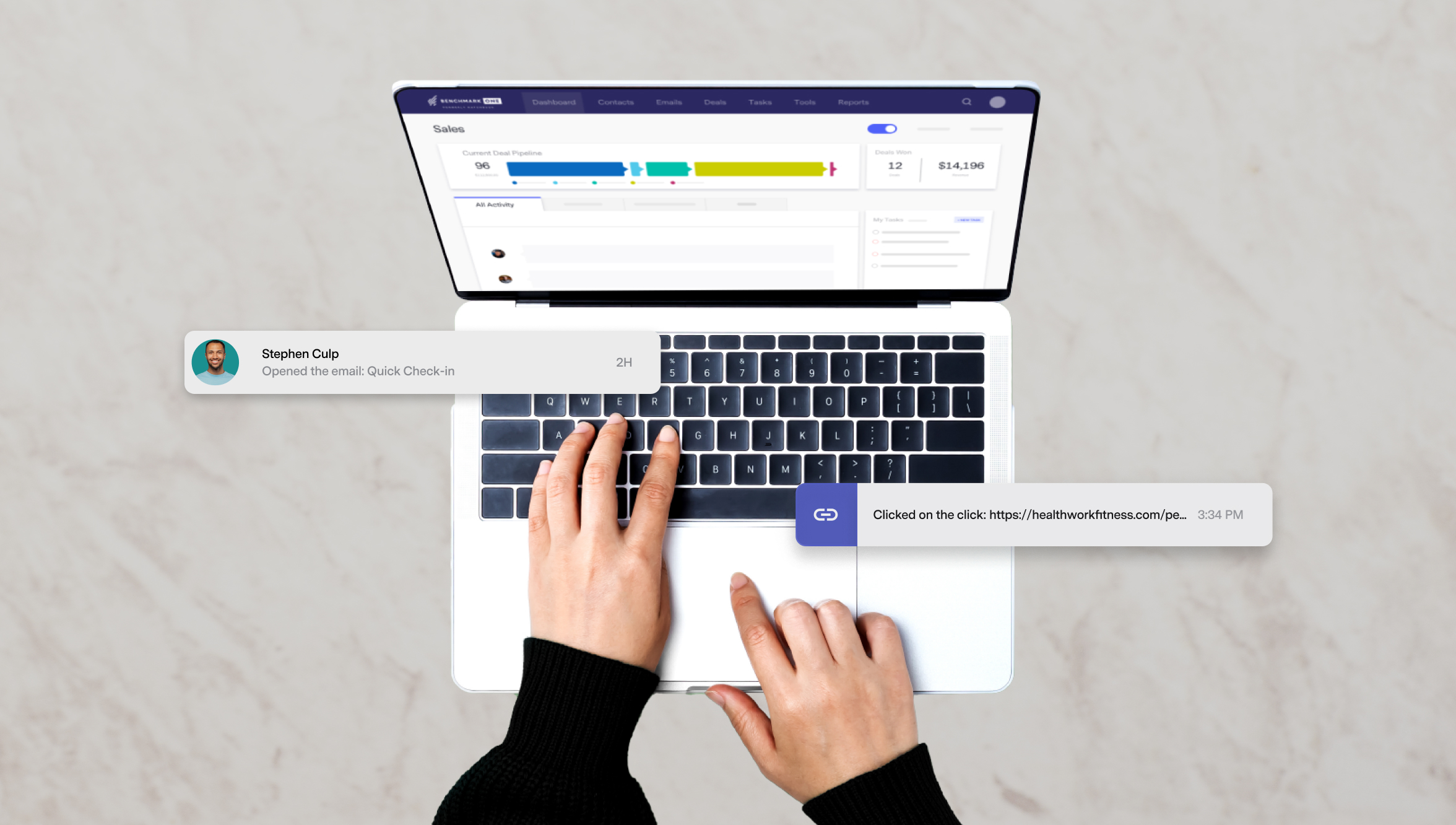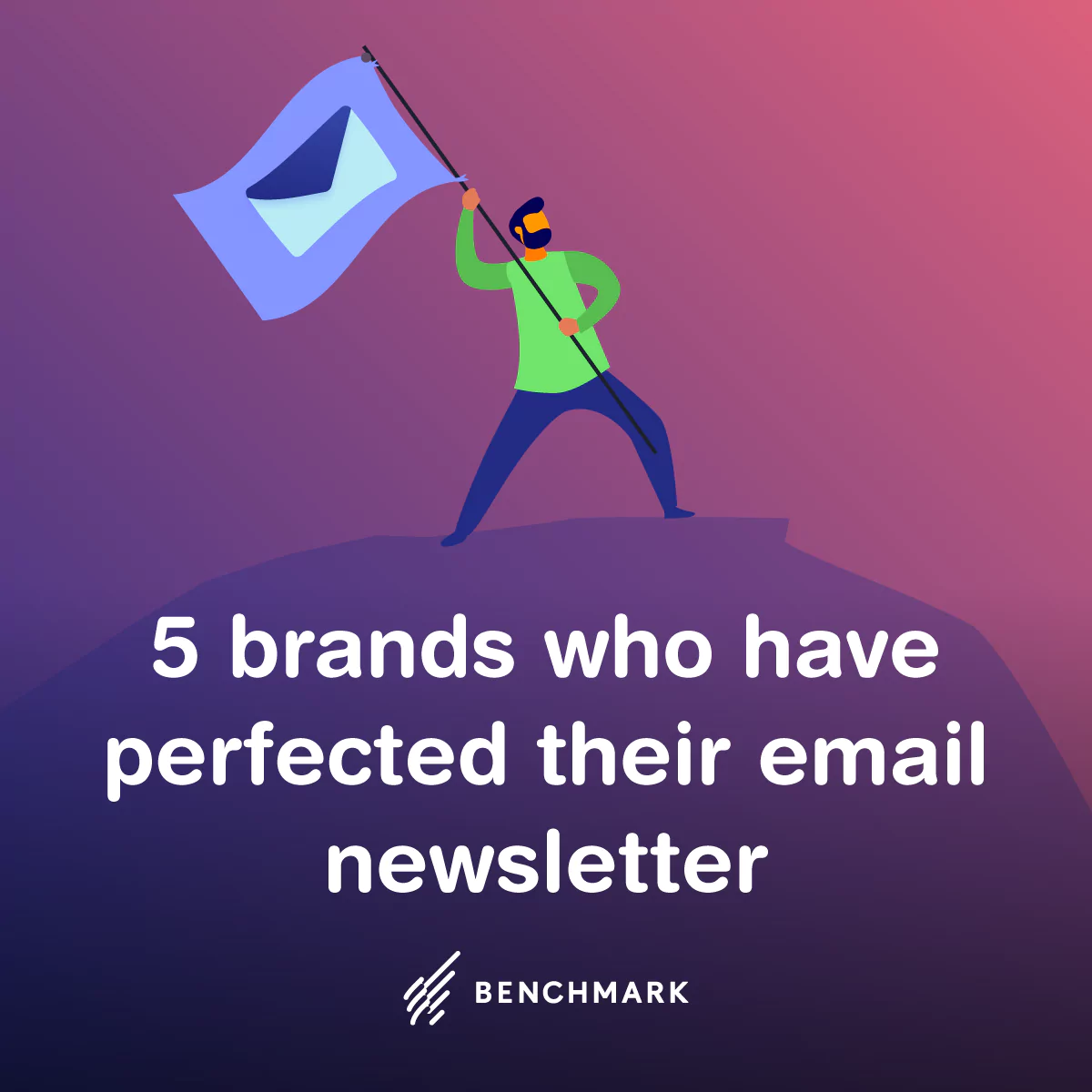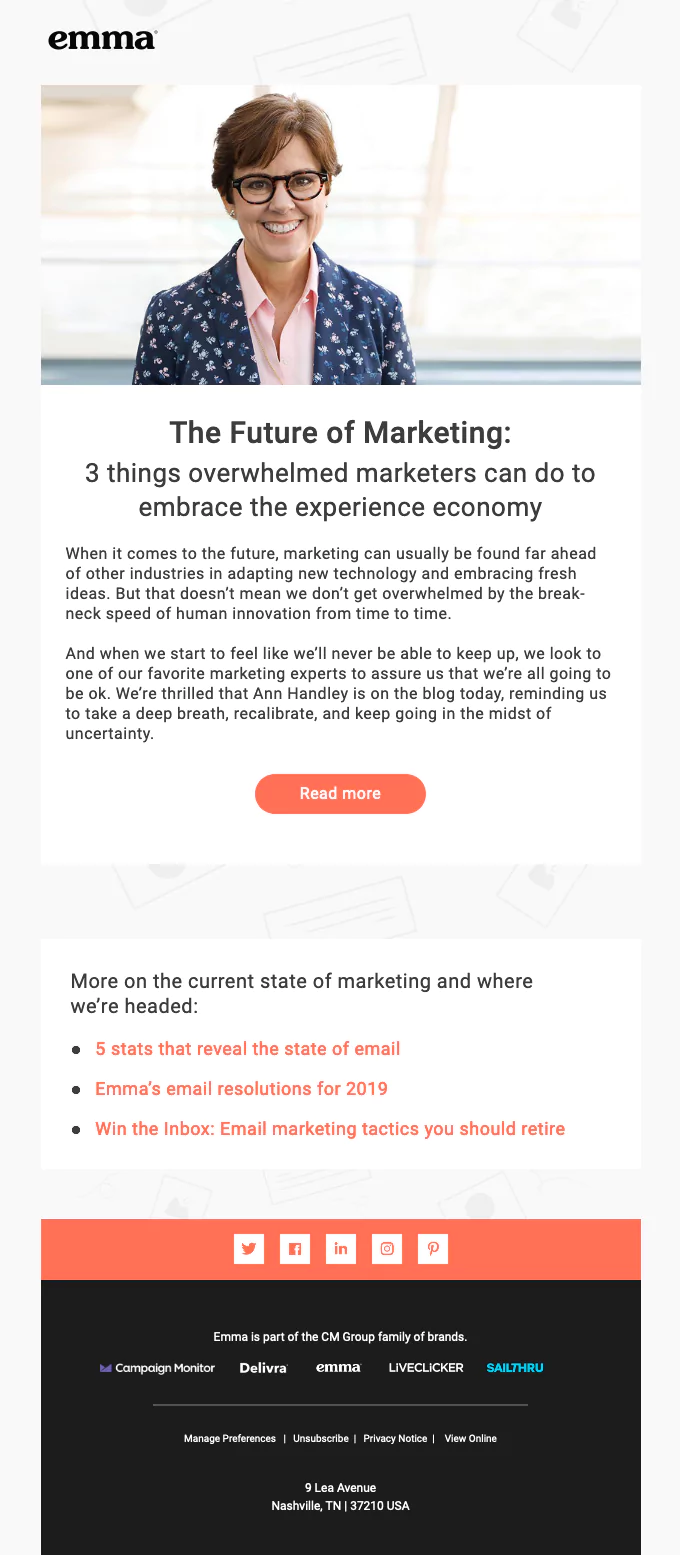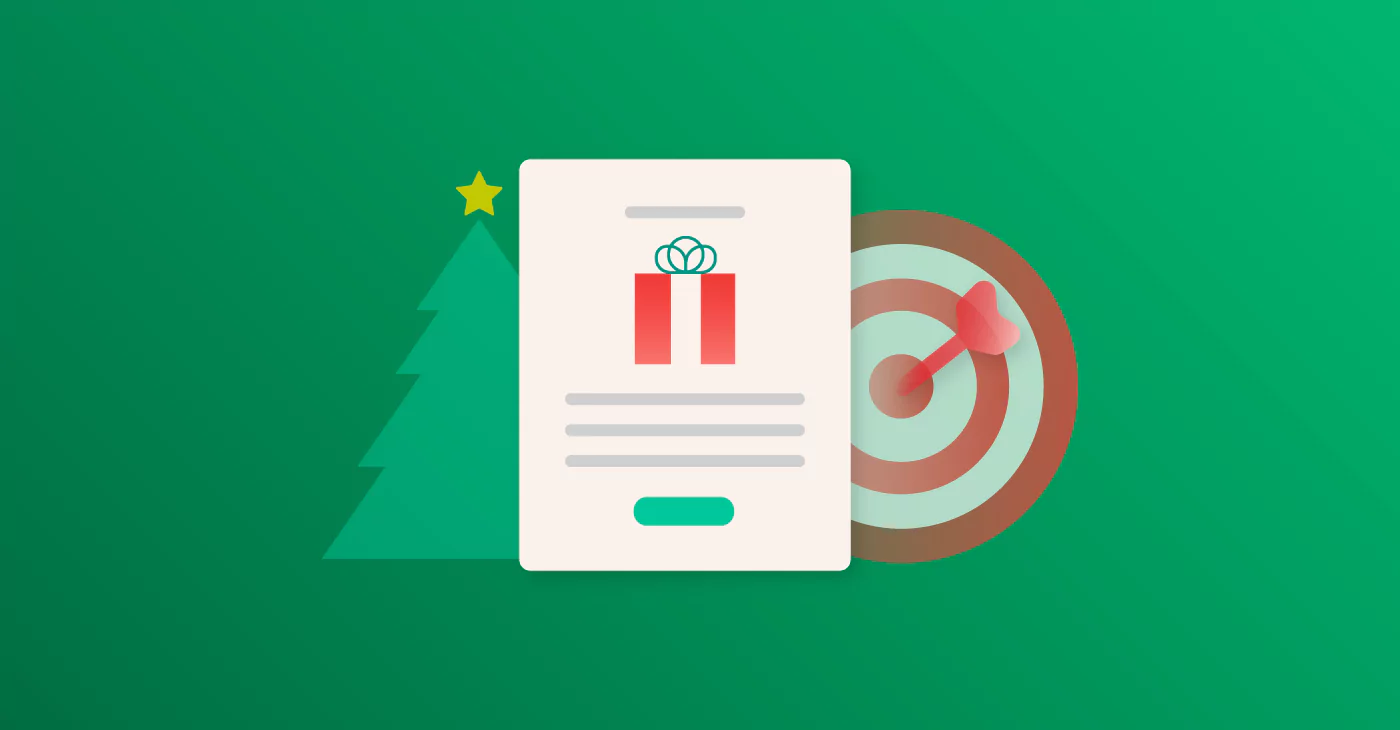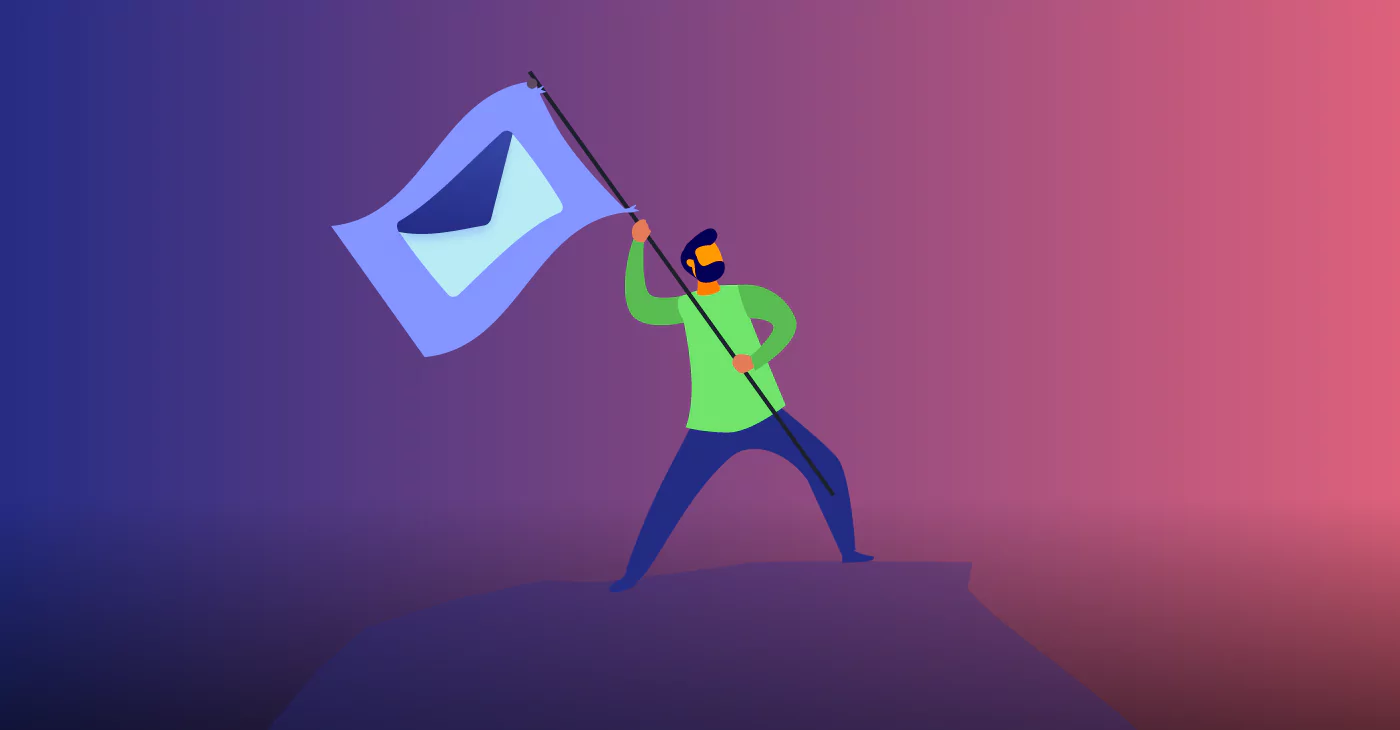
Arguably one of the most fundamental pieces of any email marketing strategy is the humble email newsletter.
Whether it’s sent daily, weekly, monthly, or once in a blue moon, it’s a touchpoint that allows you to develop an authentic relationship with your readers. And it turns out customers have an appetite for them. According to Statista, 47% of people want weekly promotions from their favorite brands.
So if you haven’t yet got one up and running or are looking to revitalize an existing one, now is a perfect time to get it started. Whether you want to share company updates, popular blog posts, or compelling promotions — an email newsletter is a great addition to your marketing strategy.
With that in mind, here are five examples of brands that have totally nailed their email newsletters.
1. SkillShare — Be Empathetic
A newsletter that’s recently caught my attention is SkillShare.
As we all feel uncertainty in the current climate, SkillShare decided to use their voice to spread a little positivity and encouragement.
But they don’t just stop there. They’ve curated a list of blog posts and courses that can help their community thrive in their new living circumstances, from advice from teachers to fun creative courses that can be done from home.
At a time where people may feel a little tender and resistant to sales pitches, SkillShare makes a conscious effort to spread a little more joy to their readers. Skillshare’s newsletter feels highly topical and thoughtful to their audience, which can only develop a stronger bond with their customers.
Key Lessons
- An important part of any successful newsletter is empathy. If you can understand your audience and consistently offer valuable content — they’ll repay you with their attention and loyalty.
2. Foreign Policy Design Group — Be Different
As a team of talented designers and writers, it’s natural to think that Foreign Policy Design would have a great newsletter. But for me, they surpass all expectations.
The newsletter serves as a roundup of company news and their favorite blog posts. And everything from their eye-catching design to inviting copywriting really stands out and differentiates their brand. By sharing details about their new office or a conference they’ve been to, we get to know the people behind the brand.
Perhaps my favorite feature of their newsletter is the clever contents section at the beginning. Designed to imitate a to-do list, it clearly signposts the main topics of the email, allowing us to both anticipate and give our full attention to the contents.

Key Lessons
- An attractively designed email is essential to high conversions. If it’s pleasing to look at, there’s a much higher chance they’ll be willing to put in the energy to read it.
- Although sharing company updates may seem trivial, it’s a great way to establish a connection with your audience. Just a few pieces of information can humanize your brand and develop trust with your readers.
- For long emails, it’s a good idea to clearly outline the topics discussed, and signposting can vastly improve the readability. Top tip: Adding a TL;DR (Too long, didn’t read) is a great way to accommodate readers that may not have the time to browse the whole email gleam the most important insights.
3. Story Matters — Be Personable
Often I think it’s easy to overcomplicate an email newsletter, trying to cram it with lots of CTA’s and various information. But sometimes less is more.
As Story Matters shows, sometimes, a stripped-back message can be really effective.
The simple letter format reads just like a conversation with a friend. It’s refreshing to read emails that feel like they’re written from one human to another.
They’re not trying to aggressively sell anything. They just focus on creating a connection with the reader. And after the letter, there’s a list of suggested articles that feels like a recommendation from a close friend.
Key Lessons
- Email is a trust-based platform where people offer a key directly to their inbox. Therefore if you can talk to your readers in a relatable and authentic way, you’ll have a much better time building a relationship.
- Whether it’s a personal letter, company update, or a roundup of popular blog posts, always try to inject your own personality into your writing.
4. Fizzle — Don’t Pitch, Tell a Story
As a copywriter, I have a personal affinity with text-based emails. Captivating an audience simply through the written word is an exciting challenge. And Fizzle does it perfectly.
In their emails, Fizzle offers a service that helps aspiring entrepreneurs. But what makes the email so interesting is that instead of simply pitching their services, they tell a story.
By starting with a candid reflection on the writer’s own entrepreneurial journey, it establishes intimacy before effortlessly gliding into a humorously blatant sales pitch.
Key Lessons
- Email is a fantastic medium to share promotional offers and services, but the key is to always offer lots of value up front before you ask for a sale. If you can tell a story, it will always add to the engagement of your writing.
- Top tip: Fizzle’s email does a great job using the AIDA copywriting formula. It stands for: Attention, Interest, Desire, Action. By guiding your readers through each step, they’ll be much more receptive to your sales pitch.
5. Emma — Get to the point
The brand, Emma, does a great job creating a clean and professional newsletter while also coming across as friendly and personable.
It doesn’t overwhelm us with information. Instead, it gives us a concise roundup of blog posts. With their single blog post as their main call-to-action, it’s obvious where they’re directing our attention. And by using a big photo, it adds a little spark to the content (particularly if you’re a fan of Ann Handley’s writing).
But they don’t just end it there. Emma also includes three refined links updating us to the ‘state of marketing’ for more thorough readers.
The reason I think this newsletter is so great is that they’ve streamlined it and kept all the essential pieces of information. It can be digested in a few minutes and feels like they’ve carefully considered their recommendations and respect their audience’s time.
Key Lessons
- Your audience’s time is valuable. And particularly in the B2B world, it can be tempting to flood your email with content. But by condensing your writing, it maximizes the chances of receiving your reader’s undivided attention.
Hopefully, this post has given you some great inspiration and got your brain whirring with ideas.
If you’re looking for an easy way to create a savvy email newsletter, check out Benchmark’s very own pre-built email
templates.
Author Bio
Nick Waghorn is a B2B copywriter and content strategist from Cornwall. In his spare time, he loves cooking and watching crime dramas. Connect with him at www.nickwaghorn.com.


